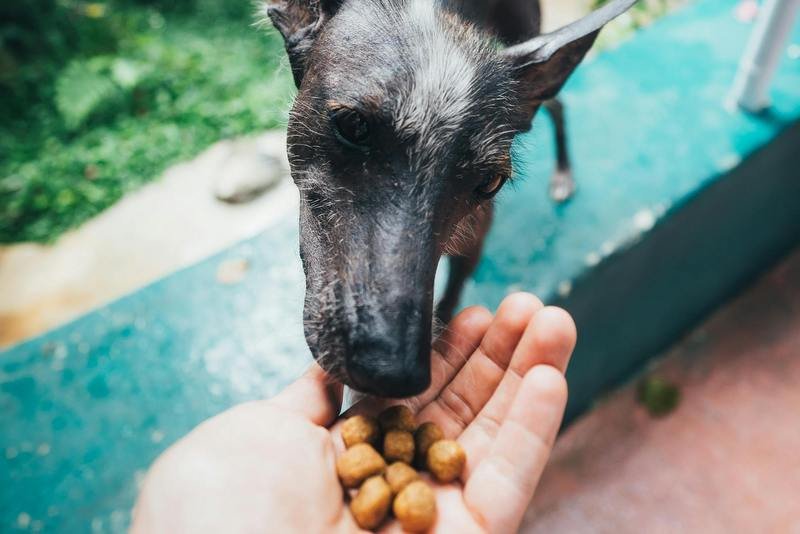As dog owners, we always strive to keep our furry friends healthy and happy. One crucial aspect of their well-being that often gets overlooked is their digestive health. Just like in humans, a dog’s gut health is vital for their overall well-being. Probiotics and prebiotics play a significant role in maintaining and improving digestive function in dogs.
In this topic ” Better Digestion in Dog: Probiotics and Prebiotics Explained “, we’ll delve into the benefits of probiotics and prebiotics for dogs, how they work, and how to incorporate them into your dog’s diet.
What Are Probiotics and Prebiotics?
Probiotics
Probiotics are live microorganisms, often referred to as “good bacteria,” that provide numerous health benefits when consumed in adequate amounts. These beneficial bacteria help maintain a healthy balance in the gut microbiome by outcompeting harmful bacteria and supporting the immune system. Common strains of probiotics used for dogs include Lactobacillus, Bifidobacterium, and Enterococcus.
Prebiotics
Prebiotics, on the other hand, are non-digestible fibers that serve as food for the beneficial bacteria in the gut. They help stimulate the growth and activity of probiotics, ensuring a thriving gut microbiome. Prebiotics are naturally found in foods such as chicory root, garlic, onions, and certain whole grains.
Why Are Probiotics and Prebiotics Important for Dogs?
Enhanced Digestive Health
One of the primary benefits of probiotics and prebiotics for dogs is improved digestive health. Probiotics help maintain a healthy balance of gut bacteria, which can prevent and alleviate issues such as diarrhea, constipation, and bloating. Prebiotics support this process by providing the necessary nutrients for the probiotics to thrive.
Boosted Immune System
A significant portion of a dog’s immune system resides in its gut. By promoting a healthy gut microbiome, probiotics and prebiotics can enhance your dog’s immune response, making them less susceptible to infections and illnesses.
Better Nutrient Absorption
A healthy gut microbiome aids in the digestion and absorption of nutrients. Probiotics and prebiotics help break down food more efficiently, ensuring that your dog gets the maximum benefit from their diet.
Alleviation of Allergies and Skin Conditions
Probiotics can help modulate the immune system and reduce inflammation, which may alleviate symptoms of allergies and skin conditions in dogs. A balanced gut microbiome can lead to healthier skin and a shinier coat.
Weight Management
Prebiotics can help in weight management by promoting a feeling of fullness and reducing the absorption of calories. This can be particularly beneficial for dogs that are prone to obesity.
How Do Probiotics and Prebiotics Work Together?
Probiotics and prebiotics work synergistically to promote a healthy gut. While probiotics introduce beneficial bacteria into the gut, prebiotics provide the nourishment these bacteria need to grow and thrive. This combination ensures a balanced and diverse gut microbiome, leading to better digestive health and overall well-being for your dog.
Choosing the Right Probiotics and Prebiotics for Your Dog
Types of Probiotics for Dogs
When selecting probiotics for your dog, it’s essential to choose products specifically formulated for canine use. Look for supplements that contain a variety of strains, such as Lactobacillus, Bifidobacterium, and Enterococcus, as these have been shown to be effective in promoting gut health in dogs.
Sources of Prebiotics
Prebiotics can be found in various natural sources and supplements. Foods rich in prebiotics include chicory root, garlic, onions, bananas, and whole grains like oats and barley. Additionally, many commercial dog foods and supplements now include added prebiotics to support digestive health.

Quality and Safety
Always choose high-quality probiotic and prebiotic supplements from reputable brands. Look for products that have been tested for safety and efficacy, and consult your veterinarian before introducing any new supplements to your dog’s diet.
Incorporating Probiotics and Prebiotics into Your Dog’s Diet
Probiotic Supplements
Probiotic supplements come in various forms, including powders, capsules, and chews. Choose a format that is easy to administer and suitable for your dog’s preferences. Follow the recommended dosage instructions on the product label or as advised by your veterinarian.
Prebiotic Foods and Supplements
Incorporating prebiotic-rich foods into your dog’s diet is a natural way to promote gut health. You can add small amounts of chopped garlic, onions, or bananas to their meals, or choose commercial dog foods that include prebiotics. Prebiotic supplements are also available and can be added to your dog’s food according to the recommended dosage.
Gradual Introduction
When introducing probiotics and prebiotics into your dog’s diet, do so gradually to avoid any digestive upset. Start with a small amount and gradually increase the dosage over a week or two, monitoring your dog’s response.
Monitoring Your Dog’s Health
Signs of Improved Digestive Health
Once you start incorporating probiotics and prebiotics into your dog’s diet, you should notice improvements in their digestive health within a few weeks. Signs of a healthy gut include regular bowel movements, reduced gas and bloating, and overall better energy levels and mood.
Potential Side Effects
While probiotics and prebiotics are generally safe for dogs, some may experience mild side effects such as gas, bloating, or diarrhea when first introduced. If these symptoms persist or worsen, consult your veterinarian to adjust the dosage or try a different product.
Regular Vet Check-Ups
Regular veterinary check-ups are essential to monitor your dog’s overall health and ensure that their digestive system is functioning optimally. Your vet can provide personalized recommendations for probiotics and prebiotics based on your dog’s specific needs.
Conclusion
Probiotics and prebiotics play a crucial role in maintaining and improving your dog’s digestive health. By incorporating these beneficial supplements into your dog’s diet, you can help support their gut microbiome, boost their immune system, and enhance their overall well-being. Remember to choose high-quality products, introduce them gradually, and monitor your dog’s health to ensure the best results. With the right approach, you can unlock better digestion and a happier, healthier life for your furry friend.





Pingback: Top Natural Urinary Tract Infections (UTI) Remedies for Dogs: Everything You Need to Know - The Puppy Farms